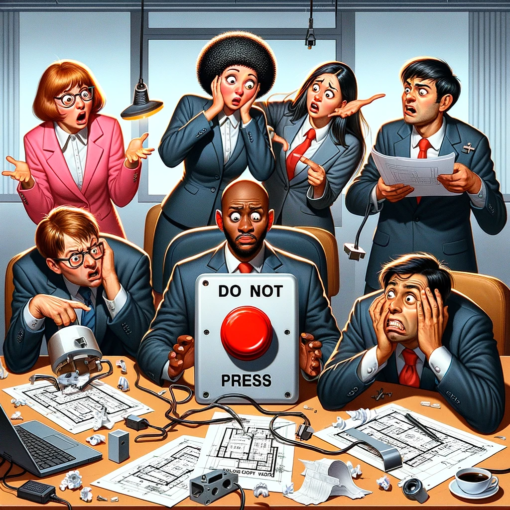Project meetings can be a very valuable communications tool that allow the team to get together to make decisions that allow the project to proceed and succeed. Beyond making decisions, they are also a useful forum to establish and maintain interpersonal relationships and define the expected team culture. However, they can also be the largest waste of time you will ever encounter. Your challenge is to make them a useful and productive method of team communication and stakeholder engagement.
A good meeting:
- Has a purpose
- Has people who come prepared and stay focused
- Sticks to an agenda
- Generates real value
- Serves as a forum for resolving issues, making decisions and team building.
A bad meeting is one where people turn up unprepared, includes people who don’t need to be there, where conversations are held that could or should have been done before the meeting or left until afterwards, where there is no accountability and no real reason for the meeting to happen. The room is filled with bored, disinterested people wishing they were somewhere else. Does any of this sound familiar? If so, then you’ve probably been in a bad meeting. Think for a moment about the people in the room and their hourly charge out rates. Add these up and you may be surprised about how much that meeting is costing to run. Are you getting value for money?
Before holding any meeting, can you justify getting these people together? Is a meeting the best way to get the results you want? Do you know the result you want? There are plenty of other ways to discuss issues, have debates, exchange ideas, catch up on personal lives and waste precious time; meetings don’t have to be your first port of call.
Once you have decided that there is merit in holding a meeting, here are some useful tips:
- Set a date and time.
- Send out an agenda—and stick to it.
- Set ground rules about meeting attendance, preparation, start time, participation and finish time.
- Leave non-agenda items for last, or for outside of the meeting.
- Start on time—if you don’t, you let people know it’s ok to turn up late and they will always turn up late. If people do turn up late, note it on the minutes; they won’t do it too often.
- Finish on time – if you don’t, people won’t turn up to future meetings.
- Only include the people who need to be there for the time they need to be there—let them go when their contribution is no longer needed.
- Don’t go longer than an hour—people can’t concentrate longer than that, and even after 30 minutes you should consider supplying food and drinks.
- Don’t let people talk over each other.
- If irrelevant discussions start, politely suggest people stay behind after the meeting to discuss or catch up at some other time.
- Have someone take good, concise minutes and circulate them after.
- Follow up on action points to ensure that are being completed.
Too many people schedule a meeting because they think it is the best thing to do without adequately considering the impact of the meeting on the decision making process, team culture and project communications. Furthermore, too many people blindly accept that attending meetings is the best way to achieve results.




